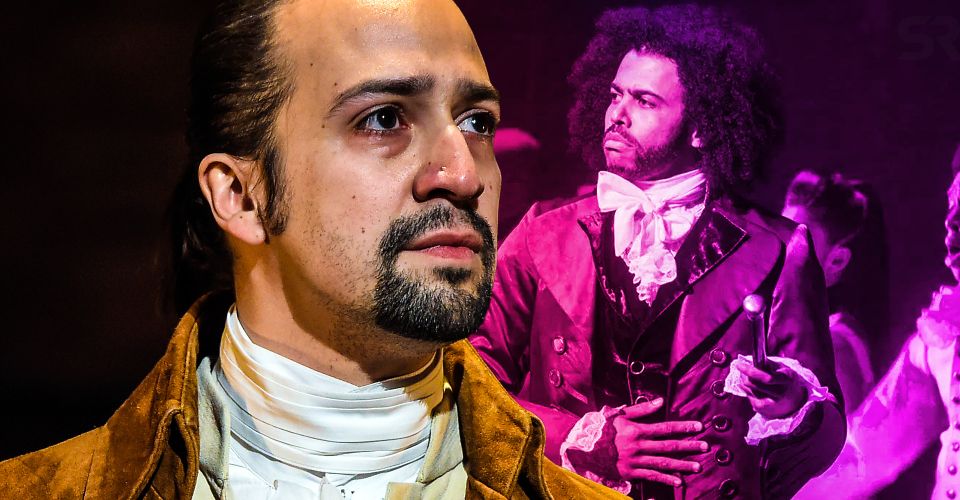Hamilton: Why Alexander Not Helping Lafayette Isn’t A Betrayal

In Hamilton, Alexander faced Thomas Jefferson in a rap battle and argued against helping his friend Lafayette in France’s impending revolution, but here’s why this wasn’t a betrayal. The scene between Hamilton (Lin-Manuel Miranda) and Jefferson (Daveed Diggs) was one of many instances in the hit musical when America’s Founding Fathers were discussing historical events by means of rap and hip-hop. Often described by Miranda as a story of past America told by the current America, Hamilton has become a cultural phenomenon since its Broadway debut in 2015. Last year, a filmed version of the production featuring Miranda and fellow original castmates found a home on Disney+.
Amid the Revolutionary War plot that made up a good portion of Act 1, Hamilton connected with his pal, the Marquis de Lafayette, who was known state-side as “Lafayette,” during the Hamilton song “Yorktown (The World Turned Upside Down).” When Hamilton asked Lafayette what he planned to do after a potential American victory, Lafayette told him that he intended to return to France and help head a similar revolution. “We’ll be with you when you do,” Hamilton assured his French comrade. Yet, in Act 2, Hamilton was toe-to-toe with his rival Jefferson during “Cabinet Battle #2.” This issue on the table was the debate over whether the American people should reciprocate France’s assistance, and Hamilton thought it was a bad idea.
Though this sounds like a betrayal, Hamilton wasn’t deliberately letting down Lafayette. The musical touched on Hamilton’s reasoning for refusing to help France. He explained that it would be unwise for President George Washington (Christopher Jackson) to lead their feeble nation into another military mess. And while Jefferson had pointed out that America once signed a treaty pledging to help France in return for their allegiance against Great Britain, Hamilton retorted that the French monarch King Louis was now dead, rendering that agreement pretty pointless. It made sense that Hamilton didn’t want to get involved in another conflict so soon, especially since it would be tough to determine where to draw the line in future involvements.

In the musical, Jefferson also reminded Hamilton of his friendship with Lafayette, but that didn’t sway Hamilton’s opinion. The musical also had some missing information about Lafayette’s story after “Yorktown.” Historically, Hamilton and Lafayette had a close personal relationship, often writing fond letters about one another to their correspondents. To his wife, Lafayette wrote, “Among the general’s aides-de-camp is a man whom I love very much and of whom I have occasionally spoken to you. The man is Colonel Hamilton” (via Den of Geek). However, when Lafayette found himself in an Austrian jail in 1792 after his attempts to quell the bloodshed in France deemed him a traitor, Hamilton must have known there wasn’t much sense in trying to fight on behalf of his imprisoned friend.
But Hamilton didn’t sit around and twiddle his thumbs while Lafayette was in confinement. Angelica Schuyler Church nearly helped the prisoner escape, no-doubt sent by her brother-in-law, Hamilton. Later, when Lafayette’s son, Georges Washington, fled to America in the hopes of reaching his namesake, he was welcomed into the Hamilton home and stayed during the winter of 1793. Lafayette was released by Napoleon Bonaparte in 1797 and eventually made it back to the United States in 1824, where he received a warm welcome. Though Hamilton was no longer alive at that time, he had written Lafayette upon his release, saying that “the only thing in which our parties agree is to love you” in reference to both his and Jefferson’s affection for Lafayette. Hamilton also declared that his bond with Lafayette would “survive all revolutions.” Though the musical Hamilton didn’t tell the full story of Lafayette, history shows that Hamilton did not give up on his friend.
About The Author


















